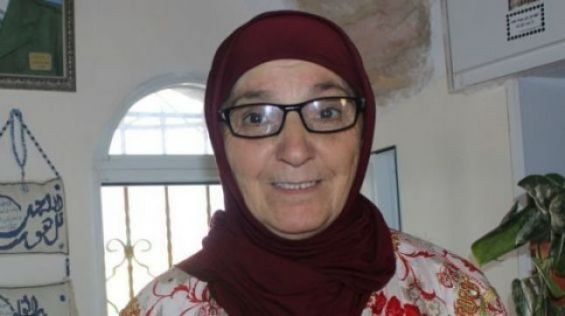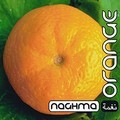Aicha al-Maslouhi was born in the Moroccan Quarter or Mughrabi Quarter in Jerusalem in 1946, only two years before the establishment of the State of Israel. Daughter of a Moroccan father and a Palestinian mother, the 770-year-old neighborhood housed, in the 1940s, 138 families from North African countries.
«My father is from Tameslouht, a mountain village near Marrakech», she told Yabiladi, referring to the origins of her family name. Before her father, hundreds of Moroccans had settled down in the neighborhood founded as an endowed Islamic waqf or religious property by a son of Saladin in the late 12th century.
Aicha’s father came to Palestine as a young man, accompanying pilgrim caravans. Back then, Moroccan pilgrims used to visit the Al-Aqsa Mosque after performing the Hajj. However, the father refused to return to Morocco and decided to stay in Al Quds and work as a guard of one of the Al-Aqsa Mosque’s doors. After a journey that lasted 51 years, he died at the age of 90.
Morocco as a refuge in the 60s
«After my father, Hajj Ahmed bin Mohammed bin Kacem al-Maslouhi, died, shortly before the 1967 war, they asked my mother if she would rather receive financial compensation or have one of my brothers replace my later father at work. One of my brothers accepted the offer and worked there for more than 30 years», Aicha explained.
Aicha recalls that before 1967 the Mughrabi Quarter used to be «a populous neighborhood, in which there was no distinction between Algerians, Tunisians and Moroccans». The Moroccan lived her whole life there until she got married in the 1960s.

But with the defeat of the Arabs in the 1967 war (also known as the Six-day war), Aisha’s life went upside down. She was forced to leave Palestine. «We were moved like most refugees to Jordan, then my husband worked in Saudi Arabia for one year. We stayed in Jordan for another year and then we moved to settled down in Morocco», she sadly recalled.
«We stayed in Rabat, got jobs as a royal grant to help the displaced, and our situation was good. I worked at the Ministry of Youth, Sports and Social Affairs and I was in the social affairs department, and my husband who is from Boumalne Dadas worked in the accounting department».
But after the death of her husband in a car accident in the city of Ouarzazate in 1974, she decided to return to Palestine. «A law called 'family reunification' was adopted, and since my mother stayed in Jerusalem and acquired documents proving her residency there, we obtained permission to return to our land and stayed there ever since», she said.
But since then, her hometown has changed a lot. «Do we still have a neighborhood ? There is a large empty lot and an area where they (Israelis, editor's note) hold their religious rituals. We have nothing left but a small area where we currently reside», she regretted.

She also recalls memories of the occupation of Al Quds. «I was married and had never witnessed an Israeli invasion of my neighborhood. Although we lived, my husband and I, in a remote area of the neighborhood, my siblings were there and my mother reported that on the morning of June 11, 1967, the Israelis started calling the inhabitants to evacuate the district, indicating that they were going to demolish it», she added. «After this operation, three bodies were discovered under the rubble. They were old people who hadn't heard the call», she regretted.
An attachment that persists through traditions
However, to this Moroccan-Palestinian, «the occupation could not destroy the memory of the inhabitants of the neighborhood, despite the destruction of their houses».
«When I was young, the inhabitants of the neighborhood maintained Moroccan customs and traditions, especially during Ramadan and the holidays. Thus, during the Holy month, the Moroccan Waqf organized a distribution of food to all the inhabitants two to three times a week. The men gathered on Thursdays to recite the Quran and a common meal was organized on Friday, during which an elderly woman from the neighborhood would prepare couscous».
She adds that Harat al-Maghariba is currently home to only ten families. «Before 1967, wealthy Moroccans came with their alms or zakat money to give generous sums to families, but after 1967 people were prevented from reaching Palestine», she said.
She also said that the families still living in Harat al-Maghariba and those of Moroccan descent were «shocked» by the recent announcement of the normalization of relations between the Kingdom and Israel. «It was painful for me and for many residents of Al Quds. What does Morocco need in order for it to normalize its ties with a Zionist and occupying entity?» she pursued, recalling that Moroccans were the first Muslims to support the Palestinian cause. «It's ugly politics», she concluded.





 chargement...
chargement...













